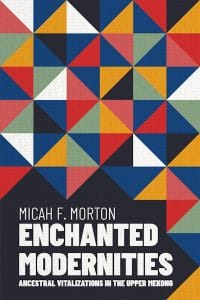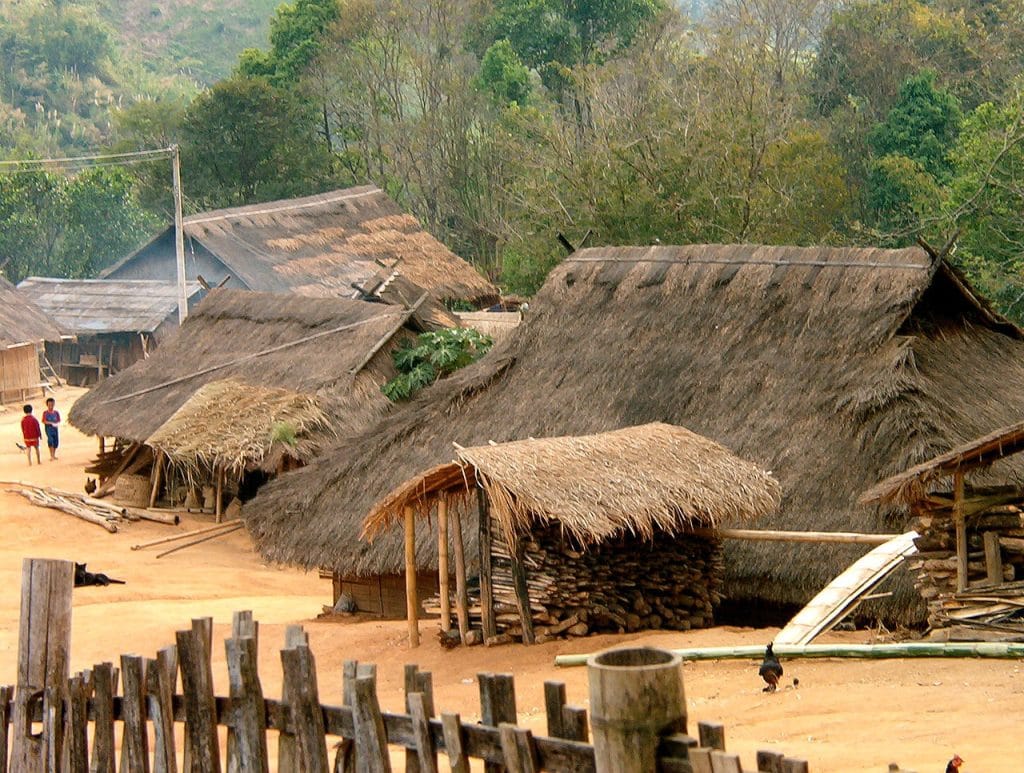Akha Ghanr is, for Akha communities, a “highly pragmatic system of customary law encompassing an entire way of life”, or it could be better described as “Ancestral ways”, acknowledging the role and leadership of their ancestors, something that is central to Akha identity and culture. How it has changed over time is the subject of Micah F Morton’s new book, Enchanted Modernities which explores the evolving role of Akha Ghanr within Akha societies across China, Laos, Myanmar, Thailand, and Vietnam. Akha Ghanr isn’t a religion in itself but rather an intricate set of ancestral cultural practices that shape Akha society. How Akha Ghanr has adapted to modernity and high rates of Christian conversion is a crucial part of this book, as is the role of neo-traditionalists seeking to both preserve Akha Ghanr and adapt it to the realities of modern life.
Morton examines how Akha neo-traditionalists are working to regenerate ancestral connections as an evolving tradition, making it easier for those to practice it in their daily life. These changes render Akha Ghanr “lighter to carry and more meaningful to the everyday lives and aspirations of Akha living within and beyond the village gates.” For instance, Akha village gates, which were historically made of wood and replaced annually, are now increasingly permanent and made out of concrete, due to Thailand’s logging bans. To maintain Ghanr, and to keep alive their connection with their ancestors, Akha communities now hold annual purification ceremonies for the concrete gates.
Other efforts to promote and preserve Ghanr have included the creation of a unified Akha writing system, one that transcends territorial boundaries and helps connect Akha from different countries and allow them to jointly develop books, media, and publications promoting their cultural heritage, such as The Book for Carrying Akha Ghanr, a guidebook for returning to Akha Ghanr. In the past, Akha saw little reason to document their beliefs, as they were shared and not under threat, but documentation now plays a crucial role in preservation.
Economic shifts have also played a role in sustaining Akha culture. The rise of rubber and coffee cultivation from the 1980s onward has provided many Akha with greater financial means to support ceremonies and cultural preservation efforts.

Perhaps the biggest challenge to Akha Ghanr is from missionary activities. The first two Akha households to convert to Christianity in Thailand did so in 1962. Many converts were told to abandon Akha Ghanr, as Christian missionaries and converts saw Christianity as helping free them from oppression. Some missionaries consider ancestral practices as a violation and contravention of Christian belief, and demanded converts burn their old ancestral altars. Therefore, many communities lost Akha Ghanr. Now, a more fluid interpretation is becoming popular, such as Christian Akha communities adopting and maintaining the sacred village gates and using them during Christian worship. Rather than tearing down the gates, they are now sprinkled with holy water or adorned with candles. Increasingly, a significant and growing number of Akha Christians maintain that they can continue ancestral traditions alongside their faith. Although this is challenged by some non-Christian Akha who view indigenous beliefs as inseparable from Akha identity.
Another major challenge is that Akha communities are spread over multiple countries, with territorial boundaries severing links between communities. The promotion of a pan-Akha identity has also become a cornerstone of efforts to protect Ghanr, allowing it to be practised and preserved throughout the region.
Morton’s book is deeply academic in tone but filled with anecdotes and firsthand experiences within Akha communities, from real-life encounters with Akha civil society. It offers some significant contributions to the anthropology of Akha society and religion, as well as a vivid portrayal of a community which has been fundamentally transformed by religious and socio-economic development over the last few decades.


You must be logged in to post a comment.